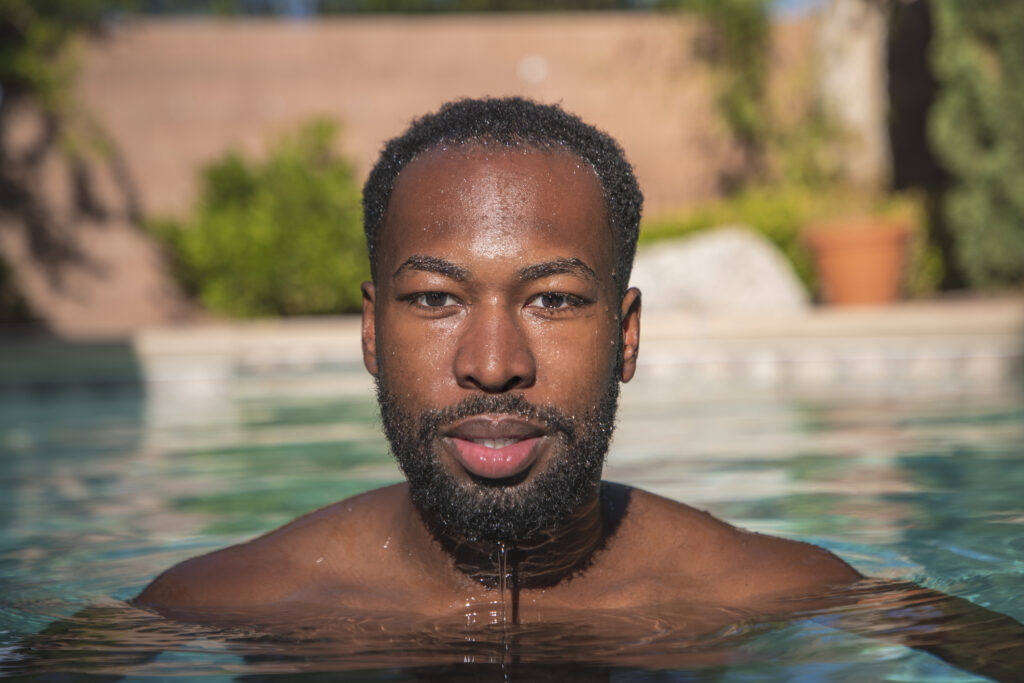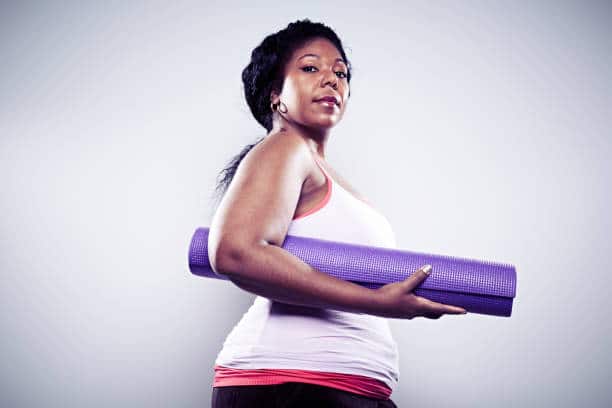
Weight loss after 40 can be a daunting task.
You’re eating the same kind of foods, eating about the same amount of food, and exercising about the same amount you always have - but suddenly, you notice that it’s harder to keep the weight off or to lose those few extra pounds.
You tell yourself that nothing much has changed -- except you're a bit older.
Starting in our early 40s, our bodies undergo a series of changes that affect the very core of our being.
Thanks to hormonal and other changes, the very growth rate of our cells slows down. Some of these changes are the result of the natural aging process. It's just something we have to learn to work around.
Sometimes, though, something's gotten off track, metabolically speaking, and there's an underlying medical issue that needs to be dealt with before the usual weight-loss measures will have any effect.
Here's a ten-step plan for understanding the challenges that prevent weight loss over 40, and for learning how to overcome them.
RELATED: The Secret to Weight Loss in Your 30s, 40s and 50s
1. Get to know your body's new biological rhythms to achieve weight loss after 40-- and adjust to them.
In long-ago times, older didn't necessarily mean plumper.
But today, those of us over 40 face a twofold challenge: We're living longer, and we're no longer out there doing physical labor.
When it comes to burning calories, it's a fairly simple equation.
What goes in must be burned off, or it sticks to our ribs. Acquiring weight is absurdly easy -- eating just 100 extra calories a day (100 more than what your body burns) will lead to a nine- to ten-pound weight gain over the course of a year, experts say.
How much is 100 calories? Not a lot: A can of Coke contains 155 calories, a chocolate bar more than 200. Of course, that cola or chocolate chip cookie is no problem if we're walking or running it off.
But after 40, our activity level tends to decline, too. So the challenge is to bring the two into balance.
Look back over the past year, and think about when your weight seemed to be holding steady and when it seemed to be trending slowly upward.
What were you doing during the good weeks? What sabotaged you the other times? Make a list of what works for you, and what throws you off. Your own healthy habits in the past are the ones most likely to work for you now.
RELATED: What Doctors Say To Eat In Your 30s, 40s, & 50s
2. Eliminate underlying metabolic conditions.
Would it surprise you to know that thyroid problems strike as many as one out of five adults over age 40?

The most common of these is hypothyroidism -- an underactive thyroid -- and hypothyroidism is one of the primary reasons many people over 40 can't lose weight.
The thyroid is a tiny gland that produces hormones that regulate metabolism, and when it's underactive, so is everything else.
Think of low thyroid as having your internal thermostat set too low.
Symptoms include feeling cold all the time, poor circulation in the hands and feet, clammy hands, tiredness and lethargy, hair loss (including eyebrows and eyelashes), and weight gain -- despite real attempts to exercise and eat well.
If you suspect an underactive thyroid may be undermining your metabolism, the first step is to call the doctor and ask for a thyroid test.
Also, you should ask for further testing; there are a number of additional tests that many experts believe give more accurate readings of thyroid function.
3. Adjust your eating habits for maximum energy to achieve weight loss after 40.
Your goal at this stage in your life is to keep yourself feeling full without succumbing to the temptation to eat like you could at age 20.
One strategy is to eat more frequently but consume less at each sitting.
An added benefit of eating this way is that it's easier to keep your blood sugar steady, so you don't have the peaks and valleys that contribute to fatigue.
Here's the rule: Try eating five to six small meals a day, and don't go more than three or four hours without eating. For example, you might eat a healthy breakfast before you leave for work, then have a nonfat yogurt in the late morning. Then, instead of eating a big pasta lunch and spending the afternoon in a stupor, eat a light lunch and spend the rest of your lunch break taking a brisk walk. An afternoon snack of trail mix and an apple keeps you from needing the 4 p.m. sweet treat and makes it easier to avoid overeating at dinner.
Your goal is the opposite of the starvation approach to dieting -- you want to trick your body into feeling satisfied and well-fed at all times, though the total amount you're eating is less.
RELATED: You’ve Earned It! How To Stay Fit & Fabulous In Your 40s
4. Time your eating to take advantage of your body's natural rhythms.
Don't like to eat breakfast?
Sorry, but there's no way around this one; eating a good breakfast is one of the key habits experts have identified that keeps thin people thin.
When members of the National Weight Control Registry (people who have maintained a weight loss of 30 pounds for between one and six years) were surveyed, 78 percent reported eating breakfast every day and almost 90 percent reported eating breakfast at least five days a week.
This was one of the only factors researchers identified that those in the registry had in common!

5. Trick your metabolism with fat-fighting foods for weight loss after 40.
I know you've heard it before, but it's true: It's really not just about how much you eat, but how much of which foods.
There are plenty of healthy foods you can eat all you want of -- and no, that doesn't mean eating a bunch of celery sticks.
Instead, make a few simple tweaks to your diet, incorporating foods that actually fight fat instead of those that trigger it. Then eat other foods in moderation, and you should be OK.
6. Make muscles an ally in your weight-loss campaign.
There's one thing the exercise gurus have gotten right: The more muscle mass you have, the more effectively your metabolism burns calories.
But sad to say, a natural tendency of aging is to lose muscle, gradually replacing it with fat. So in order to enlist the calorie-burning abilities of muscle, we do have to work at it.
A common misconception, though, is to mix up muscle-building with aerobic exercise.
Both are good, but the aerobic part -- though it does burn calories -- isn't what we're talking about here. What you really need to focus on for long-term benefit is basic strength training.
Buy some hand weights, a bar, and some stretch bands, and channel your high school gym teacher. Make it as pleasant as possible; work out while you watch the evening news or your favorite sitcom.
Slowly and gradually build up those biceps, abs, deltoids, and glutes, and you'll have some key allies in your fight to prevent age-related weight gain.
7. Get more sleep to burn more calories.
As any perimenopausal woman or hardworking man over 35 can tell you, sleep gets ever more elusive as you age.
It's not just that we're busier and more stressed. We also have multiple physical issues, from back pain to snoring to night sweats, any of which can interfere with getting a good night's sleep.
Yet, paradoxically, getting a good night's sleep is one of the keys to losing weight.
In recent years, significant research has shown that lack of sleep is directly connected to weight gain because of the actions of two hormones, leptin and ghrelin, that control hunger and satiety, or feeling full.
When you're sleep-deprived, your ghrelin levels increase at the same time that your leptin levels decrease. The result is more craving, less feeling full.
Add to that the fact that sleep-deprived people often crave "energy" foods, which tend to be sweet or salty, and you can see how small changes in your routine can add up to big weight gain.
Lastly, there are new studies suggesting that our bodies may be more metabolically active while we sleep than previously thought.
So the longer we sleep, the more we rev up our inner fat-burning engines. (You still shouldn't snack late at night, though. Researchers also believe that calories eaten late in the evening are processed less efficiently than those consumed during the day, no matter how active our nighttime metabolism.)
Add these all together and you can see a pattern emerging: The older we are, the harder it is to get a good night's sleep -- and the less we sleep, the more likely it is we'll gain weight. What to do? Take steps to combat sleep problems and your waistline will benefit, too.
8. Strike up a healthy relationship with your sweet tooth to achieve weight loss after 40.
If you're dying for a sweet treat, give it to yourself, savoring it slowly so it registers fully with your brain's pleasure sensors.
A trick that many experts recommend: Cut the treat in half before you start eating, carefully wrapping the second half up to "save for later." You may or may not want it -- sometimes if you eat the first half slowly and consciously enough, you'll feel satisfied.
But knowing it's there if you do plays a nice trick on your brain, which tends to crave things it perceives as being in short supply.
Also, don't try to substitute artificially flavored sweets. Researchers have recently discovered that artificial sweeteners fail to trigger the body's natural satisfaction response.
So eating that 100-calorie artificially sweetened cookie only adds to your problems; you'll keep on wanting the real cookie, so the 100 calories you just ate were in vain.
9. Forget dieting. Instead, focus on your fuel-to-energy ratio.
If, like most 40-somethings, you're packing some extra pounds, you've probably made plenty of resolutions to go on a diet.
You've also probably figured out by this point in your life that diets rarely work, and neither does suddenly embarking on a strenuous new exercise regimen.
There's a good reason that sudden, drastic changes don't lead to long-term weight loss, and may even lead to a rebound.
Have you noticed that your weight tends to stay fairly constant week to week, even if one day you go on a junk food binge and the next day you're fairly good?
Nature designed us with optimum abilities to maintain a steady metabolic rate, because it helps us weather food shortages and sudden demands on our energies.
Unfortunately, this means that when you've gradually gained weight over time, your body has adapted to the new weight and now does its best to hold onto it.
So here's what you do: You make slow, gradual adjustments to each end of the equation. And you -- and only you -- decide which end of the fuel-in, energy-out equation to emphasize and when.
10. Make slow, realistic changes in tune with your lifestyle.
Let's say you want to lose ten pounds.
To do so right now, you'd have to eat nothing at all for about 2 weeks, or jog for 51 hours, or walk for 126 hours.
Not only would it be impossible, attempts like those would send your body into starvation-mode metabolic slowdown, sabotaging your efforts.
But you could also, much more effectively, set out to lose one to two pounds a week for the next five to ten weeks. Remind yourself that you are the only one in charge of tuning up your metabolic engine. Decide whether you prefer to focus your energies on cutting down the number of calories you're consuming, or on upping the number you're burning.
Most likely, you'll strike a balance between the two that suits you. If adding three half-hour walks a week is relatively painless for you, that's a good choice. If going outdoors in ten-degree weather is singularly unappealing and you wouldn't be caught dead in a gym, then focus on dietary changes instead.
Your primary goal should be making small, gradual lifestyle changes that you can incorporate into your daily routine and stick with over time.
That's the ultimate secret to combating over-40 weight gain.









